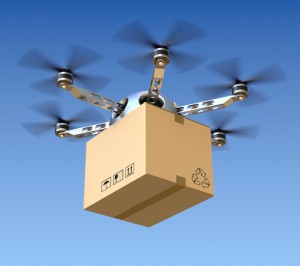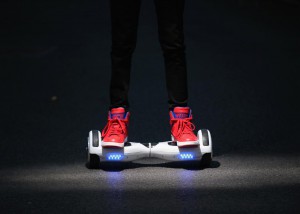9 Technologies To Watch In 2025
— January 7, 2016Technological progress reaches its peak when innovations transform from mere concepts into practical solutions for everyday life. Over the years, advancements such as voice assistants and high-performance computing have moved from niche markets to widespread adoption.
As we approach 2025, this momentum accelerates, introducing new tools and devices that promise to redefine the way we live and work. Below are nine groundbreaking technologies that are poised to make significant impacts in the coming year.
Emerging Technologies to Watch in 2025
Artificial Intelligence
Artificial intelligence (AI) has transitioned from a futuristic concept into a practical tool deeply integrated into our daily routines. Personal assistants like Apple’s Siri, Amazon’s Alexa, and Google Assistant have become household staples, offering convenience through hands-free control over devices and appliances. By 2025, these systems will advance further, enabling seamless integration with smart home ecosystems. Users will issue commands to coffee machines, thermostats, and lighting systems with increasingly natural language processing capabilities.
Beyond consumer use, powerful AI systems such as IBM Watson are transforming industries by analyzing complex datasets. For example, in the healthcare sector, AI assists in diagnosing diseases and optimizing treatment plans. Global leaders also rely on AI to process social and environmental data, crafting strategies for critical issues such as climate change and economic planning.
In Vietnam and globally, businesses using outsourcing solutions in AI development are reshaping fields like customer service, e-commerce, and predictive analytics, ensuring that AI continues to be a driving force in innovation.
Advanced Materials
The materials we use determine the functionality and durability of our devices. By 2025, breakthroughs in material science will redefine consumer electronics, construction, and healthcare. One key development is graphene, a super-strong and highly conductive material that is now more cost-effective to produce. Graphene-based CPUs and batteries are likely to hit the market, offering enhanced energy efficiency and processing speeds.
Recyclable thermoplastics, used in smartphone bodies, offer an eco-friendly alternative to traditional materials. These plastics can be broken down with specific agents, enabling more sustainable device production. Meanwhile, display technology continues to evolve. Enhanced versions of Gorilla Glass promise improved scratch resistance and flexibility, which will benefit smartphones, tablets, and even foldable devices.
This convergence of durability, sustainability, and performance highlights the importance of material advancements. Companies specializing in mobile and web development, particularly in outsourcing hubs like Vietnam, are leveraging these materials to build cutting-edge devices that cater to both global and local markets.
Smart Objects
The Internet of Things (IoT) is evolving into a world of smart objects—everyday items embedded with sensors and connectivity features. By 2025, these objects will become more ubiquitous, appearing in homes, offices, and public spaces. Products like door handles, tablecloths, and even doormats will feature sensors that monitor usage patterns, providing users with data to enhance efficiency and convenience.
For instance, a smart office chair might track posture and recommend adjustments to improve ergonomics. In homes, smart lawn sprinklers will optimize water usage based on weather forecasts. These innovations highlight how IoT is becoming a tool for data-driven lifestyle adjustments. Businesses adopting web and mobile outsourcing services are integrating IoT technology to enhance user experiences, ensuring smart objects play a pivotal role in shaping daily life.
Robotics
Robotics remains a field where imagination often outpaces reality. However, significant strides are being made. In 2025, consumer and commercial robots will become more advanced and accessible. Social robots, like Pepper and Jibo, are being adopted in customer service roles, assisting users with information and navigation. Meanwhile, home robots are growing in popularity for tasks like cleaning and security.
Educational robots designed for STEM learning will also see broader adoption, fostering technological literacy in younger generations. While fully autonomous humanoid robots remain a distant goal, the steady integration of robots into industries like healthcare, manufacturing, and retail demonstrates their growing importance. Vietnam, with its strong outsourcing capabilities, plays a critical role in developing software and AI for robotic systems.
Virtual Reality
Virtual reality (VR) is set to experience a surge in adoption in 2025 as hardware becomes more affordable and content more engaging. Companies are developing immersive experiences that combine storytelling and interactivity, enabling users to become active participants in digital environments. From entertainment to education and virtual tourism, VR is reshaping how people interact with technology.
Oculus and other VR platforms are at the forefront of creating next-level experiences, allowing users to engage with characters and environments in real-time. In industries like real estate and design, VR offers practical applications such as virtual walkthroughs and interactive prototypes. Software Outsourcing companies specializing in VR content development are helping companies globally expand their reach and offer innovative solutions to their customers.
Bio-Security
Biometric security is revolutionizing how individuals and organizations protect sensitive information. Fingerprint and facial recognition systems are now commonplace in smartphones and laptops. By 2025, advancements in bio-security will focus on improving accuracy and reliability. Technologies like voice recognition and gesture-based authentication are also becoming more prevalent.
Windows Hello, which relies on Intel’s Real3D camera, continues to lead the way in secure authentication methods. This approach eliminates the need for passwords, enhancing both convenience and safety. Businesses developing mobile apps or web platforms are increasingly integrating biometric security measures to safeguard user data.
Mobile Payments
Mobile payment adoption has grown steadily, yet challenges remain. In 2025, the global shift towards contactless payment methods will gain momentum. Systems like Apple Pay, Google Pay, and Samsung Pay are becoming more reliable, integrating with banking systems and retail networks.
Chip-enabled credit cards, already common in Europe and North America, are encouraging users to transition away from traditional swiping methods. This evolution complements mobile payment systems, fostering a broader acceptance of cashless transactions. Companies offering outsourcing services in web and mobile payment development are at the forefront of creating secure and user-friendly platforms.
Drones
Drones have expanded beyond recreational use to become essential tools in logistics, agriculture, and filmmaking. By 2025, drone deliveries will be a reality in many urban areas, with companies like Amazon and Walmart investing in automated solutions for package delivery. Larger drones capable of carrying passengers are also under development, potentially revolutionizing urban mobility.
In agriculture, drones equipped with sensors and cameras assist farmers in monitoring crops and optimizing yields.
Next-Generation Hoverboards
Hoverboards gained popularity as personal mobility devices despite safety concerns. By 2025, a new generation of hoverboards will address these issues with certified batteries and improved stability. Optional features such as handles and enhanced safety measures will make these devices more accessible and user-friendly.
The evolution of hoverboards reflects broader trends in urban transportation, focusing on convenience and sustainability. Companies involved in developing software for these devices ensure seamless integration with mobile apps, enhancing the user experience.
Conclusion
The technological landscape of 2025 promises exciting changes that will touch every aspect of our lives. From AI-driven insights to advanced materials and immersive virtual experiences, these innovations offer practical solutions to real-world challenges. Vietnam, as a hub for software outsourcing, plays a pivotal role in bringing these technologies to global markets. As these advancements continue to unfold, they pave the way for a more connected, efficient, and innovative future.













